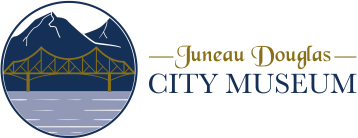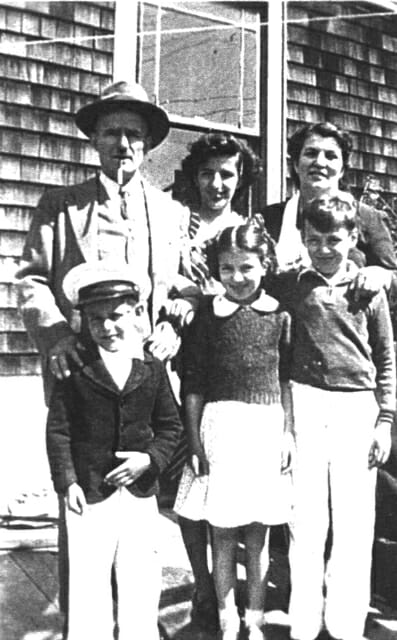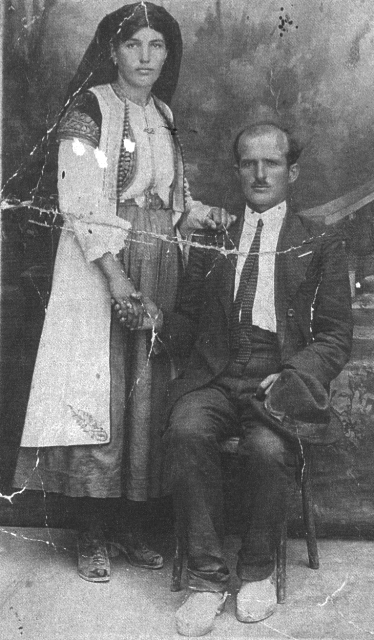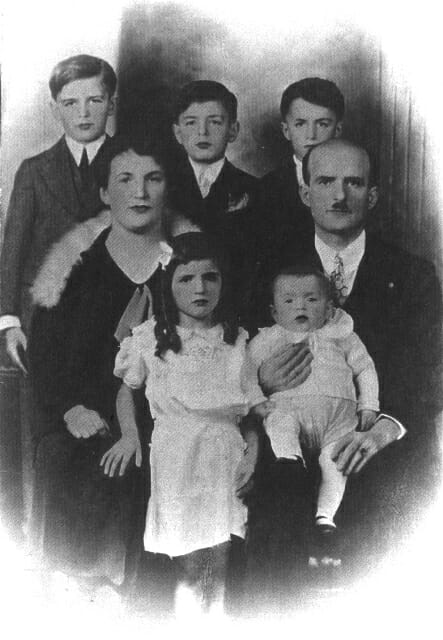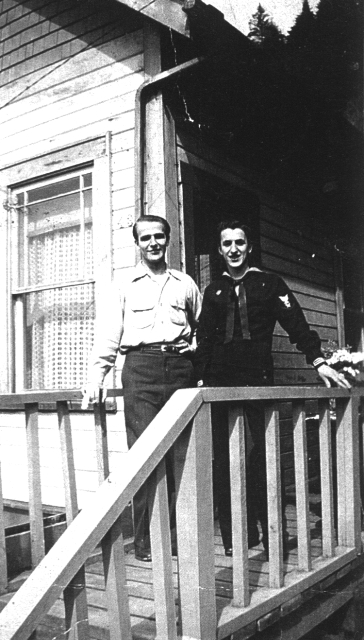Gastineau Channel Memories
Dapcevich
oral interview with John Dapcevich
My parents, Sam and Stana Dapcevich, were born in Montenegro, a small country that subsequently became part of Yugoslavia. They immigrated to the United States in 1923, and immediately settled in Pennsylvania. My dad worked in the coal mines there and that?s where my brothers, Bill and Paul, and I were born. We followed the mines to Hibbing, Minnesota, where my sister, Mileva, was born.
In 1928, my father was mining near Butte, Montana, and times were tough. His cousin, Marko, and his brother, Pete, were miners in Juneau. They told dad to come up, as there was always room for another miner. They said he might have to wait in line for awhile, but he would get work. Dad decided to move north; so he and his wife, Stana, gathered the children, William, Paul, Mileva and myself, and we sailed north on the steamship Yukon, arriving in Juneau on October 23, 1928. Shortly after our arrival dad did get work in the mine. A few years later I entered school in Juneau, and it was difficult for me. English was a second language for my brothers and me. (My sister only two years old passed away shortly after our arrival in Juneau.) We had to learn the language and attempt to keep up in our classes at the same time.
We found refuge in the Serbian community that was quite large. There were over a hundred Serbian people in Juneau at the time. Most were miners, but a few had businesses in the community as well. Among these families was another Dapcevich family. Marko, a distant cousin to my father, and Velika Dapcevich and their six daughters lived on Basin Road. The Nickinovich family lived on Gastineau Avenue until their boardinghouse was destroyed in the devastating slide of 1936. Fortunately, they were visiting our family on Starr Hill on the night of the slide and were spared. Charlie and Marica Miller and their family also lived on Gastineau Avenue. Charlie operated the Capitol Bar on Front Street. In addition to the many families, there were a number of single men, many of who had families in Yugoslavia and were supporting them through their work in the mines. The Serbians were a tight knit group that enjoyed and supported each other during hard times. In 1933, when our father decided to build a home on Starr Hill, the Serbian community worked together to help build the house which still stands at 433 5th and Nelson Street.
Juneau in the thirties was a ?blue collar? community. Most of the people who lived here were hourly workers with the mine, the primary source of employment. In 1934, a ?wildcat strike? closed the Alaska Juneau Mine. One thousand miners were without work, and there was no financial safety net for the families. The miners struck for better wages (most were making about $4 per day) and burial benefits, if they were killed in the mine. Two years later the strike was settled with very few of the issues settled. To stretch the family budget, my brothers and I worked after school selling or delivering newspapers. I was fortunate enough to be allowed to sell papers on the vessels that came to port in Juneau. I once counted 36 vessels that came to Juneau on a regular basis. They were an excellent source of customers for my newspaper sales. I sold papers for the Alaska Daily Press. In addition to our newspaper jobs, we also picked berries in season and sold them to the local bakery. Our family survived the depression years by working together and pitching in to make ends meet. Meanwhile, our family grew larger. Violet was born in 1930, followed by Bob in 1935, Natalie in 1936, and Don in 1938.
I have many fond memories of growing up on Starr Hill. Our family was quite self-sufficient. My mother planted a garden that would supply the family with fresh vegetables. Cabbages from the garden would be made into sauerkraut in big crocks in the basement. My father would order wine grapes from the Bavard family?s California Grocery on South Franklin Street. The grapes would be placed in a large barrel; and I, as runt of the family, would put on a special pair of boots and be lifted into the barrel to stomp the grapes. My dad would chip in with others to buy a half a cow (older cows that the local dairies would slaughter and sell). They would make sausages from the meat that would hang in our basement in the same way that they would be hung in the ?old country.? Game meat from deer would supplement our diet as would fish. Local fishermen would lay undersize halibut and salmon out on the docks and people would gather them in potato sacks. Being a large family, we would consume them as fast as we got them. We had no refrigeration other than outside coolers. We had ten chickens that my brother, Paul, tended. We had goats for milk with which we supplemented the milk that we bought from local dairies for three quarts for 25 cents. The Messerschmidts operated the San Francisco Bakery, and George, Sr. delivered bread daily. We had an old stove that burned wood and coal. There was a coal bunker at the Alaska Steamship Dock run by George Karabelnikof. He would deliver bags of coal and kindling wood to the bottom of the stairs leading to our house, and the children would transfer the coal into buckets and would carry these and the bags of wood up the 72 stairs to the house.
Growing up on Starr Hill was not without the joy of children, who enjoyed each other?s company and who had a special feeling of community. The out-of-doors was our playground. In the summertime, we played kick-the-can or greenlight or hide and go seek; but in the wintertime it was special. Gus Peterson, whose father owned the garbage business in town, had a toboggan, which would accommodate 6 or 8 of us; and we would slide down 5th Street from Nelson all the way to Franklin Street. We also made skis from barrel staves and innertubes cut up and made into bindings. We would build jumps halfway down the hill to add a little spice to the descent. We had a special place that is part of Juneau?s history, The Chickenyard, a basketball court at the base of Starr Hill. This was the place where the Thibodeau brothers, Leslie Hogins, Rod Nordling, Denny Merritt, Kenny Kearney, Evan Scott, and Herb Mead joined me and my brothers to hone our basketball skills. Herb Mead was our generation?s superstar who went on to play college basketball and to a career as a high school coach.
When I became a teenager, I went to work at Percy?s Caf?, a landmark restaurant in downtown Juneau, as an ice cream maker and graduated to soda jerk, then dishwasher, then pantryman, then to fry cook and finally to dinner cook all in one year. I made the astronomical sum of $10 per shift! My brother, Bill, delivered telegrams for the Alaska Communications System. We helped our parents pay off their mortgages and buy appliances for the house with the money we earned.
When the War came, many jobs were available in the community. Many able-bodied men went to work war related jobs in the interior. I remember I wanted to quit high school and go to the Aleutians to work as a cook for the magnificent salary of $125 per week. My father, a great believer in education, nixed that idea, and I stayed and finished high school. My older brother, Bill, enlisted in the Army in 1942, and I enlisted in the Navy in 1944, and both of us saw duty in the Aleutians for the remainder of the war. Near the end of the war the Alaska Juneau Mine closed, and my dad was out of work.
After the mine closed, my father went to work at the Capitol Building as the custodian foreman on the swing shift. The Capitol Building was then called the Federal Building; and it housed the Post Office, the Court System, the Museum, all state offices, the Legislature and the Alaska Communications System. The Territory was a lot smaller then.
My father died in 1955, my brothers Paul and Bob in 1964, and my mother in 1978. My brother, Don, left for service in the Air Force and returned after retirement; mysister, Natalie, returned after her husband retired from the Coast Guard, and I left in 1960, to move to Sitka, where I stayed for 35 years serving as mayor for six terms. When I retired, I moved back to Juneau. Now all of the remaining siblings, Bill, Violet, Natalie, Don and myself with our families live in Juneau.
My mother and father had a special feeling for their adopted country and for Alaska, the part that they chose to call home.
